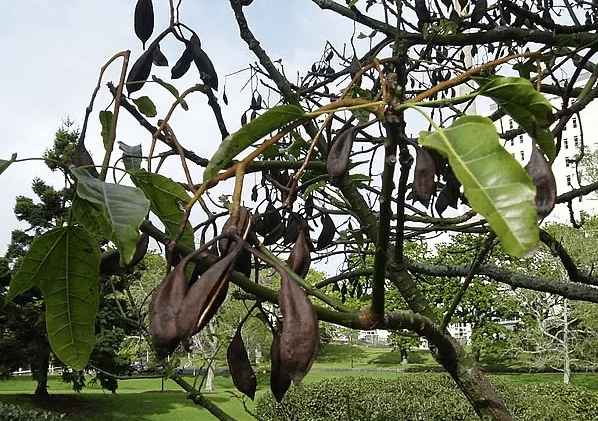In the lush green expanses of New Zealand, the puzzle of weed control looms large over its rich biodiversity. A deluge of unchecked plant growth can birth a cornucopia of concerns. These unwelcome botanical interlopers not only mar the eye-pleasing vistas but also wage war on soil vitality by usurping crucial nutrients, hampering the prosperity of beneficial flora in their wake. Their relentless onslaught wreaks havoc on agricultural output and threatens to destabilize native ecosystems – flora and fauna alike. Thus, effective weed management ascends to paramount importance – a clarion call for top-tier weed killers in NZ.
A profusion of weed exterminators jostle for space on market shelves, yet one conundrum endures – Which reigns supreme as the most potent executioner? The quest for this formidable adversary demands careful sifting through myriad factors; from discerning type and intensity of infestation to assessing risk posed to neighbouring plants and gauging environmental impact. Chemical herbicides offer swift comprehensive eradication but organic counterparts find favour due to their negligible toll on local biodiversity and soil healthiness.
However, no matter which side you lean towards– synthetic or natural – effectiveness hinges precariously upon apt application and timing; thus illuminating the invaluable role played by seasoned professionals in agriculture and horticulture spheres.
Selecting the Ideal Herbicide for Your Garden
As cultivators tending the fertile soils of New Zealand, we frequently find ourselves ensnared in the perplexing challenge of selecting an efficacious strategy for managing intrusive weeds. The query echoing consistently is, “What constitutes a natural weed slayer in NZ?” Sifting through arrays of eco-conscious alternatives to unveil a natural adversary for weeds often means exploring options such as vinegar, salt or even homemade herbicidal concoctions made from commonplace household items. These earth-friendly weed vanquishers present themselves as ideal solutions for those striving towards organic gardening practices while preserving nature’s delicate equilibrium.
In contrast, when longevity and sustained efficiency come into question, garden enthusiasts regularly probe – “What eradicates weeds enduringly?” To ensure lasting action against these unwelcome guests, one must handpick a weed annihilator that doesn’t merely wipe out existing growths but also thwarts any potential resurgence. Such herbicides are categorised under residual weed killers due to their distinctive faculty to formulate an impervious barricade against weeds within the soil itself. However, it’s critical to bear in mind that this persistent effect fluctuates based on factors like specific types of weeds encountered, chosen herbicide variant and particular deployment technique.
Decoding the Different Types of Weed Killers
Astonishment often arises from the lips of green-thumbed individuals and domestic garden gurus alike, “What could be the most effective venom to annihilate all weeds?” Seeking an answer requires a deep dive into understanding the intricate world of weed assassins and recognizing their peculiar attributes that cater to your needs.
With a broad brushstroke, one can paint weed killers into two distinct categories: selective and non-selective. The former, dubbed as “the discerning executioners,” set their sights on particular types of weeds while sparing other flora in their midst. On the flip side, non-selective weed slayers fulfill their promise by decimating almost every kind of unwelcome vegetation blocking their path.
If your quest is for the supreme long-lasting weed destroyer specifically suited for New Zealand’s landscapes, certain elements need careful consideration. Factors such as this region’s distinctive weather patterns, soil composition including its mineral content and pH level along with local notorious weed types play pivotal roles in determining which herbicide will triumph over others.
For instance, systemic herbicides – absorbed through leaves then coursing through each plant cell – have been seen to provide sustained control over weeds by eliminating them right from root level upwards. This approach proves especially potent against stubborn perennial invaders.
However important it is not to lose sight that while they may prove successful in battle against these unwanted intruders; each herbicide carries its own share of advantages and drawbacks. These should be thoroughly evaluated before choosing your weapon for this war on weeds.
Organic Solutions for Weed Management: Pros and Cons
Garden devotees and agriculture aficionados across the verdant landscapes of New Zealand find themselves ensnared in a compelling attraction towards organic methodologies for weed control. This burgeoning interest is fuelled by an escalating inclination for ecological sustainability and the preservation of human health. Employing top-tier organic weed exterminators that NZ boasts can yield marked advantages over conventional chemical herbicides.
These eco-friendly products, born from nature’s bounty, successfully curtail their detrimental influence on soil vitality, aquatic ecosystems, and indigenous wildlife populations. Moreover, organic weed annihilators exhibit diminished direct threats to gardeners and handlers as they are devoid of venomous chemicals which might inflict harm through respiratory intake or dermal exposure.
Yet every remedy bears its own unique array of hurdles to overcome—organic solutions being no exception. The frequency at which these natural alternatives need application tend to be greater in comparison with their synthetic counterparts; additionally, they may falter when pitted against vehemently invasive species of weeds. Notably too is their elevated cost when procured from local vendors like Weed Killer Bunnings NZ.
Such factors necessitate thoughtful deliberation; a balancing act between yearning for an environmentally conscious answer while maintaining practicality intertwined with monetary feasibility comes into play here. It becomes pivotal not to lose sight that each lush expanse or agricultural setting possesses distinct requisites and conditions moulding the selection process for the most apt weed management strategy.
Chemical Herbicides: A Detailed Analysis

The efficacy of chemical herbicides, as substantiated by a plethora of researches and studies, is unquestionably remarkable in the realm of combating invasive plant species such as weeds. One particularly prominent example that stands out is none other than farmland weed killers. They are hailed for their unparalleled proficiency in purging vast expanses of agricultural terrain from infestations.
These formidable agrochemical agents operate ingeniously by stunting the growth trajectory of intrusive weeds while simultaneously fostering vital crop yield, thereby amplifying farm productivity levels to new heights.
In the retail landscape, herbicides like Mitre 10 weed killer have managed to carve a niche for themselves among homeowners and professional gardeners alike. This potent blend proves an indispensable ally when grappling with stubborn perennial weeds found within domestic gardens. Equipped with the ability to infiltrate deep into the root system of plants, Mitre 10 weed killer eradicates these undesirable intruders at their deepest core.
However, despite these clear advantages offered by chemical herbicides, it’s imperative they be handled delicately due to potential health risks and environmental impacts associated with them.
Effective Homemade Weed Killers: Are They Worth the Effort?
With an increasing inclination towards homemade weed killers, a number of homeowners are drawn in by the potential appeal of their supposed non-toxicity and cost-effectiveness. These DIY concoctions, crafted from commonplace ingredients like vinegar, dish soap, and salt found around the house, present themselves as an alluring substitute to traditional herbicides. While it cannot be denied that these homemade solutions carry certain benefits, it’s crucial to delve deeper into their efficacy and grasp what they truly offer in terms of weed management.
Investigations delving into the potency of these home-crafted weed exterminators have yielded varied outcomes. For instance, vinegar – a favored choice among DIY herbicide formulas – can indeed eliminate plants within a few days when applied generously. However, where it falls short is its lack of residual control – something regularly provided by commercial weed killers meaning weeds could re-emerge after only a brief hiatus. Upon juxtaposing with commercially available alternatives, these domestic plant-killers often necessitate more regular application coupled with increased labor input – factors which might negate any initial financial advantages. Henceforth while considering homemade options stands valid; homeowners should balance out their constraints against what their gardens require for optimal growth.
Safety Measures While Handling Weed Killers
Engaging with herbicides, whether of organic origin or concocted from chemicals, necessitates the formulation of a meticulous checklist for safety. These substances wield potential harm physically – to illustrate, they can spawn irritation on the skin or inflict damage upon eyesight. Moreover, if accidentally inhaled or consumed, they might instigate insidious health complications.
It is incumbent upon users to familiarize themselves comprehensively with the indications and directives peppered across product labels. Additionally, it is advisable to invest in personal protective gear such as gloves and eyewear that shield against harmful exposure; clothing deemed suitable also serves this purpose well.
Beyond safeguarding oneself lies the broader responsibility towards others: weed killers must be stowed safely away from children and pets’ curious clutches; inadvertent access might lead to unintentional consumption – an incident packed with dire implications for health. Careful handling extends beyond usage lest these potent agents infiltrate our environment threatening its vitality and balance.
Discarding them appropriately post-use significantly reduces their adverse environmental impact while preserving ecosystem equilibrium. Incorporating these measures into one’s modus operandi when dealing with weed killers not only ensures one’s own protection but also contributes towards maintaining Mother Earth’s wellbeing.
FAQ
The importance of weed control anchors deeply into New Zealand’s profound biodiversity. Weeds, unmanaged, can suffocate native species, manipulate their habitats and stir chaos within ecosystems. Additionally, they pose threats to agricultural productivity as well as tarnish the visual allure of landscapes.
Arriving at an appropriate choice of herbicide demands a thorough examination of multiple aspects including types of invading weeds, spatial extent requiring treatment and existence of precious plants or crops. An indispensable step is meticulously reading through product labeling and strictly adhering to manufacturer instructions.
Weed annihilators broadly fit into two classifications – selective and non-selective. Selective ones focus on exterminating specific categories of weeds whereas non-selective versions decimate any foliage they encounter. They further differentiate into pre-emergent variants that stifle weed germination or post-emergent forms that eliminate sprouted weeds.
Organic means towards managing weeds typically align with environmental friendliness while being harmless to humans and pets alike. However, their efficacy might fall short when compared to chemical counterparts plus some may necessitate repeated application cycles.
Chemical herbicides excel at suppressing and eradicating unwanted plant growth providing diverse options concerning selectivity along with timing flexibility for applications. Notwithstanding these advantages, improper usage risks harming our environment, unintended species targets plus potentially human health itself.
Homemade remedies against invasive plant growth provide cost-effective alternatives while preserving ecological balance often utilizing everyday items like vinegar or salt. However, they might lack the potency of commercial weed annihilators necessitating frequent reapplication to keep weeds at bay.
When engaging with weed annihilators, it’s prudent to don protective gear such as gloves and goggles. Inhaling these products is ill-advised plus post usage hand cleansing must be rigorous. The product label serves as the ultimate guide for safe handling and appropriate disposal practices.










+ There are no comments
Add yours